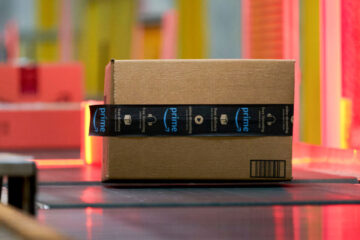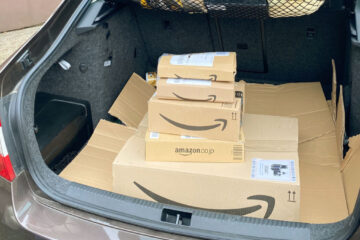President Donald Trump’s tariff roller coaster has caused some market instability over the past few months. After delaying most of them, U.S. stocks are recovering, likely due to Trump’s decision on exemptions for certain high-tech products.
On April 13, Trump clarified that tech products like laptops and smartphones were not being exempted but were instead being moved into a different tariff “bucket.” He also announced that semiconductors and the broader electronics supply chain would be reviewed in upcoming National Security Tariff Investigations.
💵💰Don’t miss the move: Subscribe to TheStreet’s free daily newsletter💰💵
President Trump’s on-again, off-again tariff policies have impacted several major industries, including consumer goods and industrial equipment.
Although the aerospace industry typically avoids tariffs thanks to a long-standing agreement between the U.S. and Canada, recent threats—such as a possible 25% tariff on Canadian and Mexican imports—have cast a veil of uncertainty over the sector, reports Reuters.
Amid all the chaos, a Canadian Airbus plant assembled a single-aisle A220 jet—uncertain whether it would reach its intended buyer, Delta Air Lines (DAL) , with or without a 25% tariff. The constantly shifting rules leave two possibilities: Delta could receive the plane tariff-free, or it could owe duties to the U.S. government for parts made outside the U.S.
The final decision on the tax is expected in June, when the aircraft is scheduled for delivery, according to aviation analytics firm Cirium.
Delta Air Lines has some uncertainty about its latest plane deliveries.
Getty Images
Delta Air Lines posts flat earnings, steps back on 2025 outlook
Delta Air Lines recently reported first-quarter 2025 earnings with GAAP operating revenue of $14.04 billion, nearly flat compared to $13.75 billion in the same quarter of 2024.
While revenue came in flat, the most attention was drawn to the company’s projections for this year. Three months ago, Delta Air Lines forecast record-breaking profits, but those expectations no longer stand.
Related: Airline risks closing forever, canceling more flights
Delta Air Lines CEO Ed Bastian recently told CNBC that there had been a “reduction in broad consumer confidence and corporate confidence.” Weaker-than-expected bookings caused the company to pause its plans to expand flights by 3% to 4% in the second half of 2025; now, it will keep them flat for the year.
When asked if he still thinks that the U.S. economy is not heading for recession, Bastian said that he is unsure but that “we are acting like we are headed for recession” and that everyone is taking a defense posture.
No, we will not pay tariffs
During the company’s first-quarter earnings call, Bastian was straightforward when talking about the tariff issue.
“The one thing that you need to know, we are very clear on, is that we will not be paying tariffs on any aircraft deliveries we take,” Bastian told analysts. “These times are pretty uncertain. And if you start to put a 20% incremental cost on top of an aircraft, it gets very difficult to make that math work. So we’ve been clear with Airbus on that and we’ll work through and see what happens from that.”
At the end of the last year, Delta projected it should receive 43 aircraft from Airbus, many of which would come from outside the United States. Meaning that if tariffs are imposed, dozens of planes scheduled for delivery this year could be delayed.
In a February interview with CNBC, Airbus CEO Guillaume Faury said the company might have to prioritize deliveries to non-U.S. customers if tariffs disrupt imports.
Despite all the turbulence, Delta Air Lines still expects to remain profitable in 2025.
Related: Japanese carmaker takes drastic action amid U.S. trade war


